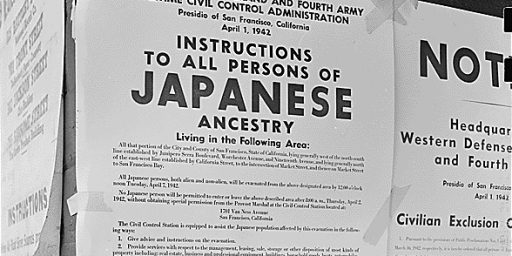EQUAL PROTECTION?
Virginia Postrel weighs in on sodomy laws with the equal protection argument:
The Georgia sodomy law in Bowers did not distinguish between homosexual sodomy and heterosexual sodomy. Thus, as one of the dissents pointed out, it was a mystery why the majority went off on homosexuals. While the plaintiff in that case was, in fact, gay, under the law at issue, it made no difference. It was as if the majority were to decide, given an Asian defendant in a murder case, that they would craft a rule for Asian murder, or Asian Miranda rights, or Asian due process.
The Texas law throws open that bizarre aspect of Hardwick. Texas permits heterosexuals to engage in all the sodomy they want, and prohibits it only for lesbians and gay men. This brings the equal protection clause into play. One of the fundamental aspects of our democracy is that a majority may not impose on a minority rules it does not impose on itself, unless there is a good reason. While the level of scrutiny a court will give to such laws varies, at the very least the majority must have a rational basis for imposing rules on minorities it does not choose to impose on its own members. Thus, the court may very well decide that, while states may continue to prohbit sodomy despite the liberty and privacy jurisprudence, they cannot prohibit it for one group and not for another — a state sodomy law must apply to all citizens or none under the equal protection clause.
Well. . . no. As far as I’m aware, homosexuals aren’t a protected class. The Constitution precludes state discrimination on the basis of race, so “Asian murder” laws would be obviously unconstitutional. And, presumably, homosexual sodomy would be illegal for heterosexuals, too, under Texas law.
Now, again, I think these laws are a bad idea. And I’m not sure they survive a rational basis test. But let’s not start with the presumption that the law currently treats sexual orientation in the same way it treats race or even gender.
Update (18:00): Chris mentions a possible counter-precedent in his Comments below. Romer v Evans occurred to me, but since they didn’t overturn Bowers v Hardwick, I don’t think it qualifies. Indeed, Scalia points out that inconsistency in his dissent.
The decision in Romer basically relies on a rational basis argument:
The primary rationale the State offers for Amendment 2 is respect for other citizens’ freedom of association, and in particular the liberties of landlords or employers who have personal or religious objections to homosexuality. Colorado also cites its interest in conserving resources to fight discrimination against other groups. The breadth of the Amendment is so far removed from these particular justifications that we find it impossible to credit them. We cannot say that Amendment 2 is directed to any identifiable legitimate purpose or discrete objective. It is a status based enactment divorced from any factual context from which we could discern a relationship to legitimate state interests; it is a classification of persons undertaken for its own sake, something the Equal Protection Clause does not permit. “[C]lass legislation . . . [is] obnoxious to the prohibitions of the Fourteenth Amendment . . . .” Civil Rights Cases, 109 U. S., at 24.
We must conclude that Amendment 2 classifies homosexuals not to further a proper legislative end but to make them unequal to everyone else. This Colorado cannot do. A State cannot so deem a class of persons a stranger to its laws. Amendment 2 violates the Equal Protection Clause, and the judgment of the Supreme Court of Colorado is affirmed.
They specifically didn’t overturn Bowers and specifically declined to create a protected class. But they did take something of a half step in that direction.






You can make an argument that Romer v. Colorado made homosexuals at least a somewhat protected class, i.e. something beyond the rational basis test applied. What that something was (“heightened scrutiny”, “strict scrutiny” or whatever) was left unarticulated, IIRC.
Chris,
Romer v Evans occured to me, but since they didn’t overturn Bowers v Hardwick, I don’t think they actually do that. Indeed, Scalia points out that inconsistency in his dissent.
The decision in Romer basically relies on a rational basis argument:
By that argument, laws (and state constitutional provisions) specifically prohibiting polygamists from voting would also violate the EPC, but somehow I don’t see the Supreme Court overturning those laws.
Romer strikes me as one of the cases where the Court said “we’re not creating a protected class” when in fact their action was more protective than it might have been to another conceivable class.
Are there laws that prohibit polygamists from voting? (There might be; I’ve just never heard of that before.) Presumably, polygamy is a crime in all states and most states preclude prisoners and convicted felons from voting. . .
At least the Mississippi constitution sets out a number of offenses (and no others) for which conviction may strip your voting rights. In addition to the good stuff (murder, arson, etc.) is bigamy. I never quite understood that one. (You can also lose your right to vote for duelling – that’s in the Bill of Rights; it must have been a serious problem in the past.)
“Article 12, Section 241. Every inhabitant of this state, except idiots and insane persons, who is a citizen of the United States of America, eighteen (18) years old and upward, who has been a resident of this state for one (1) year, and for one (1) year in the county in which he offers to vote, and for six (6) months in the election precinct or in the incorporated city or town in which he offers to vote, and who is duly registered as provided in this article, and who has never been convicted of murder, rape, bribery, theft, arson, obtaining money or goods under false pretense, perjury, forgery, embezzlement or bigamy, is declared to be a qualified elector, except that he shall be qualified to vote for President and Vice President of the United States if he meets the requirements established by Congress therefor and is otherwise a qualified elector.”
I assume other states have similar provisions. I know Utah’s constitution forbids the passage of any law permitting polygamy, for example.
Heh. Bizarre. I guess it’s a different thing–I mean, marrying multiple people isn’t a status situation, it’s purely an act–but it is a strange distinction to make in the law.
I am not a constitutional lawyer, so please correct me if I am wrong. But my understanding of Court decisions is that you not only have to show discrimination, but you must show that the discrimination has had a negative effect on the entire class of people in order to provide unusual protections, or be recognized as a “disadvantaged” class. Is that right?
If it is, please examine the economic profile of the average homosexual American to the average American overall. I think you will find that as a class average, they enjoy a higher overall economic status than the median American. This is to say that overall, discrimination has NOT held them back.
Asking for special protections of the law to protect an “advantaged” minority is what oligarchies, monarchies and nobility type governments do. It should not be what Democracies do. The Constitution explicitly does NOT PROTECT YOU FROM BEING OFFENDED. WE HAVE TO OPPOSE THE FORCES WHO WISH TO ENFORCE SPEECH CODES, and give those already advantaged more advantages.
This should be obvious even to liberals. But then again, the definition of liberal in the dictionary, and the current practice of “liberals” in the political arena are pretty much diametrically opposed.
—